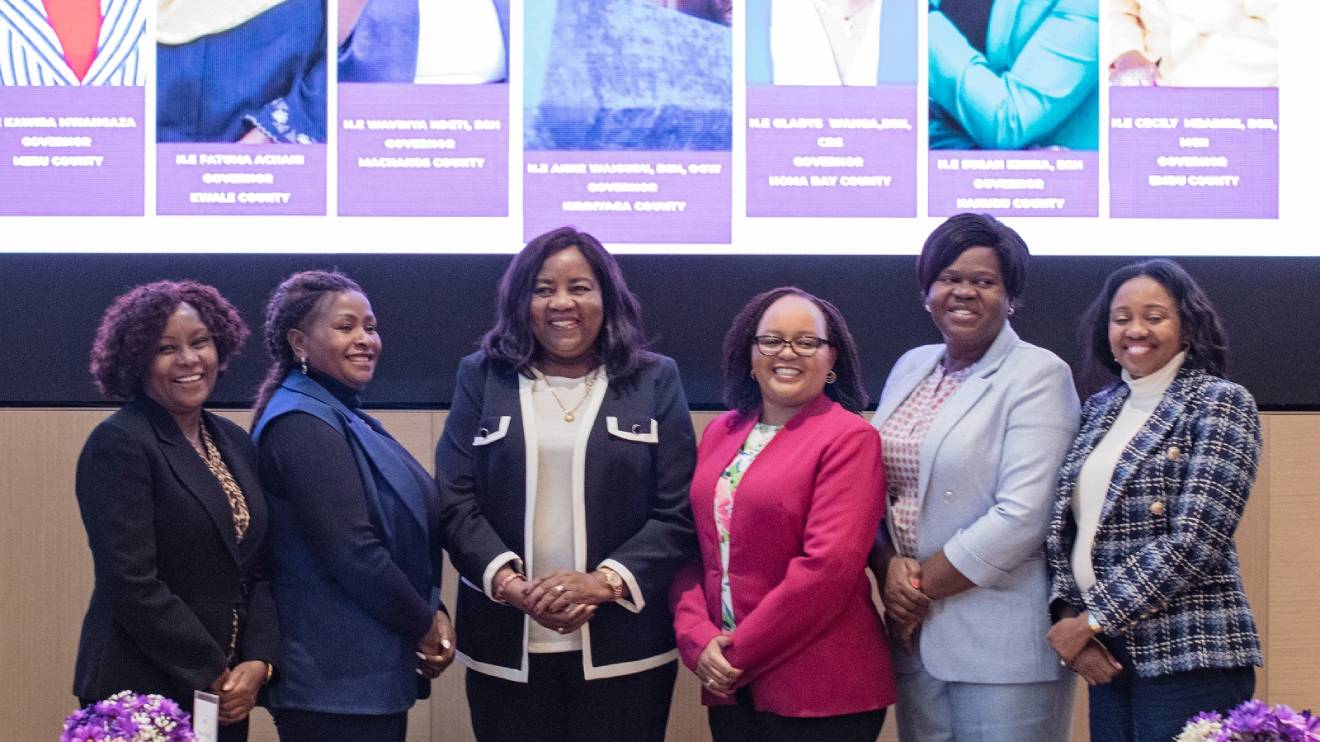Kenya's Council of Governors (CoG) women caucus is making strides towards achieving gender equality in leadership by launching the G7 Strategy chapter in New York.
This international expansion follows the strategy's successful launch in Kenya two weeks ago.
The G7 Strategy unites the seven elected women governors of Kenya under a common vision: to be transformative leaders and champions of inclusive political participation for women.
The strategy prioritizes five key areas – socioeconomic development, political strategy, good governance, accountability and access to justice, and institutional strengthening.
The New York launch, held in collaboration with Oxfam USA, aims to garner international support for the strategy's implementation.
Read More
Governor Anne Waiguru, Chairperson of the COG and the first woman re-elected to govern Kirinyaga County emphasized the importance of partnerships.
She highlighted recommendations made at the forum, including establishing mentorship programs for aspiring female leaders, developing a strong communication strategy, and identifying women with leadership potential.
Strengthening women's organizations was also identified as crucial to the strategy's success.
Governor Waiguru underscored the G7 Strategy's role in guiding current women governors to remain responsive to community needs while providing clear intervention priorities.
She further emphasized the significance of leveraging the experience of current governors to inspire future generations of female leaders.
Waiguru championed the expansion of the G7 approach into a Pan-African movement, aiming to inspire similar governance systems across the continent to prioritize female leadership.
President William Ruto, who previously affirmed his commitment to gender equality, attended the Kenyan launch of the G7 Strategy.
He expressed support for alternative gender representation models to achieve the one-third gender rule in leadership positions.
The President pledged to push for the implementation of recommendations from the National Dialogue Committee (NADCO) report, which proposes amending the Elections Act to enforce party list compliance with the two-thirds gender principle.
Additionally, the report recommends establishing a dedicated women's inclusion and political participation fund to support female candidates through education, training, mentorship, and capacity building.
Currently, Kenya faces a significant gender gap in top leadership positions. The 67-member Senate includes only 21 female senators, with only three elected and the remaining 18 nominated by parties.
The National Assembly reflects a similar disparity, with only 80 women out of 349 lawmakers. While 29 women were elected from constituencies, 47 were elected as County Woman Representatives, and just four were nominated by parties.
The COG women caucus' international launch of the G7 Strategy signifies a critical step towards achieving gender parity in Kenyan leadership and potentially inspiring similar movements across Africa.









 shares a light moment with the company's Group CEO Dr Patrick Tumbo (right) at a past event-1758121528.jpeg)
-1758116028.jpeg)

